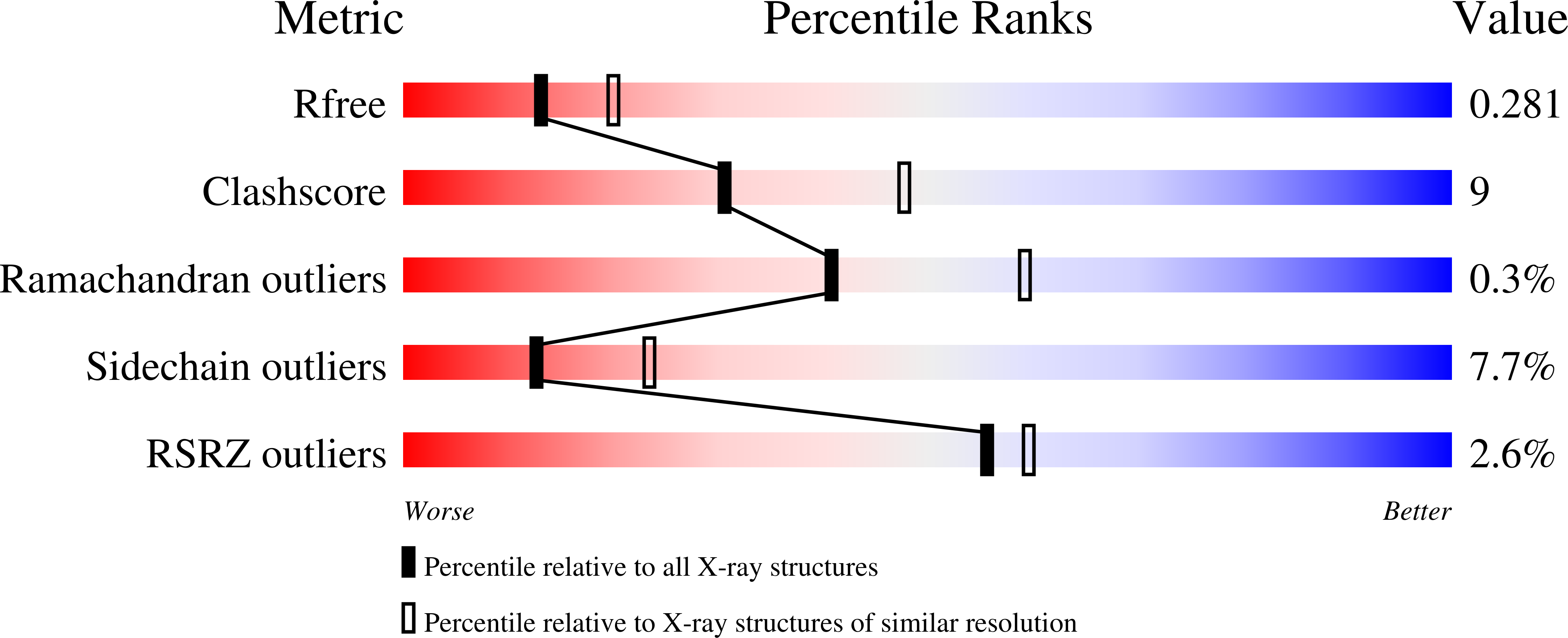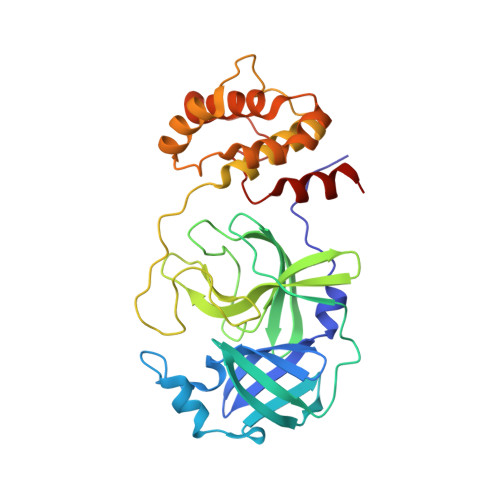Structure and inhibition of SARS-CoV-1 and SARS-CoV-2 main proteases by oral antiviral compound AG7404.
Fabrega-Ferrer, M., Herrera-Morande, A., Muriel-Goni, S., Perez-Saavedra, J., Bueno, P., Castro, V., Garaigorta, U., Gastaminza, P., Coll, M.(2022) Antiviral Res 208: 105458-105458
- PubMed: 36336176
- DOI: https://doi.org/10.1016/j.antiviral.2022.105458
- Primary Citation of Related Structures:
7P35, 7ZQV, 7ZQW - PubMed Abstract:
Severe acute respiratory syndrome coronaviruses 1 and 2 (SARS-CoV-1 and SARS-CoV-2) pose a threat to global public health. The 3C-like main protease (M pro ), which presents structural similarity with the active site domain of enterovirus 3C protease, is one of the best-characterized drug targets of these viruses. Here we studied the antiviral activity of the orally bioavailable enterovirus protease inhibitor AG7404 against SARS-CoV-1 and SARS-CoV-2 from a structural, biochemical, and cellular perspective, comparing it with the related molecule rupintrivir (AG7800). Crystallographic structures of AG7404 in complex with SARS-CoV-1 M pro and SARS-CoV-2 M pro and of rupintrivir in complex with SARS-CoV-2 M pro were solved, revealing that all protein residues interacting with the inhibitors are conserved between the two proteins. A detailed analysis of protein-inhibitor interactions indicates that AG7404 has a better fit to the active site of the target protease than rupintrivir. This observation was further confirmed by biochemical FRET assays showing IC 50 values of 47?¦̀M and 101?¦̀M for AG7404 and rupintrivir, respectively, in the case of SARS-CoV-2 M pro . Equivalent IC 50 values for SARS-CoV-1 also revealed greater inhibitory capacity of AG7404, with a value of 29?¦̀M vs. 66?¦̀M for rupintrivir. Finally, the antiviral activity of the two inhibitors against SARS-CoV-2 was confirmed in a human cell culture model of SARS-CoV-2 infection, although rupintrivir showed a higher potency and selectivity index in this assay.
Organizational Affiliation:
Institute for Research in Biomedicine (IRB Barcelona), The Barcelona Institute of Science and Technology, Baldiri Reixac 10, 08028, Barcelona, Spain; Institut de Biologia Molecular de Barcelona (IBMB-CSIC), Baldiri Reixac 10, Barcelona, 08028, Spain.

















